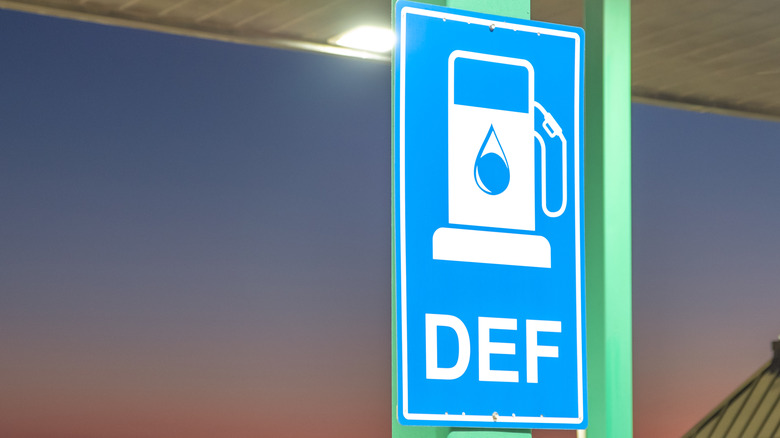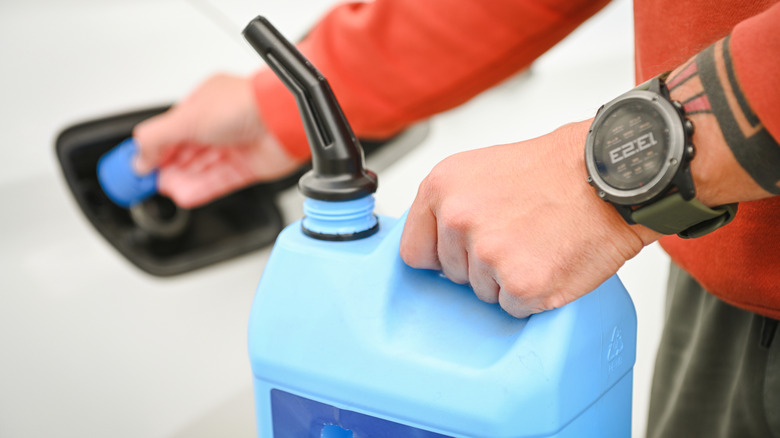What Can Happen If You Use Expired Diesel Exhaust Fluid (DEF)?
It's no secret that diesel engines have experienced significant growth over the past two decades. Today, many manufacturers, including Subaru, Volkswagen, and Audi, are choosing diesel, as it is more efficient than gasoline and is also more energy-dense. Despite these perks, diesel-powered engines have one major drawback: they usually generate high levels of nitrogen oxides (NOx), which automakers have tried to control through diesel exhaust fluid, also known as DEF.
But what exactly is DEF? Well, it's a solution made of urea and water that works with selective catalytic reduction (SCR) systems to convert harmful toxins like NOx into harmless products like nitrogen and water vapor. But just like other fluids (say, oils and additives) that help keep your engine clean and efficient, DEF is only effective and safe for a limited period. Given how important the fluid is, you don't want your diesel-powered vehicle to run on expired DEF.
Long-term use of expired DEF can significantly affect the performance of the selective catalytic reduction (SCR) system. Using degraded fluid means that the SCR will not effectively convert NOx into nitrogen and water vapor. Your vehicle will have increased emissions that lead to error codes, possibly forcing your engine to shift into power and speed-limiting mode. Even worse, aged DEF could clog vital components like the DEF lines and injectors. This will mainly lead to poor fluid flow, potentially resulting in SCR failure — a repair that can cost thousands of dollars. Other faults can include reduced engine performance, rough idling, or forced engine shutdowns.
How long does DEF last (and can you tell if it's expired)?
Given the damage an expired DEF can bring to your vehicle, knowing the signs of an aged DEF is just as important as knowing the right type to use. After all, there's no reason you should experience any of the common problems most diesel engine owners face just because of an expired DEF.
Generally, DEF has an average shelf life of 12 months. Estimates, however, can vary based on several factors. For instance, if you store DEF in direct sunlight or high heat, its shelf life will drastically drop. Your choice of storage will also matter, since exposure to certain metals like steel and aluminium will also contribute to DEF degradation. To extend your DEF's lifespan, you'll ideally want to store it in a high-density polyethylene container. You also want to ensure that the cap is tightly sealed.
Now, if you're not sure about the condition of your DEF, there are many ways to know if it has gone bad. The quickest clue to tell if unused DEF is still safe is by checking the manufacturing date. If it's more than one year old and has been stored in a hot environment, it's safer not to use it, even if it's been in a sealed bottle. If you can't tell how long the DEF has been lying around your garage, don't worry; there are visible signs that will indicate if it's expired. DEF should be clear, but it turns yellowish or cloudy once it expires. Expired DEF may also become thick and sticky or develop an unusual smell.

